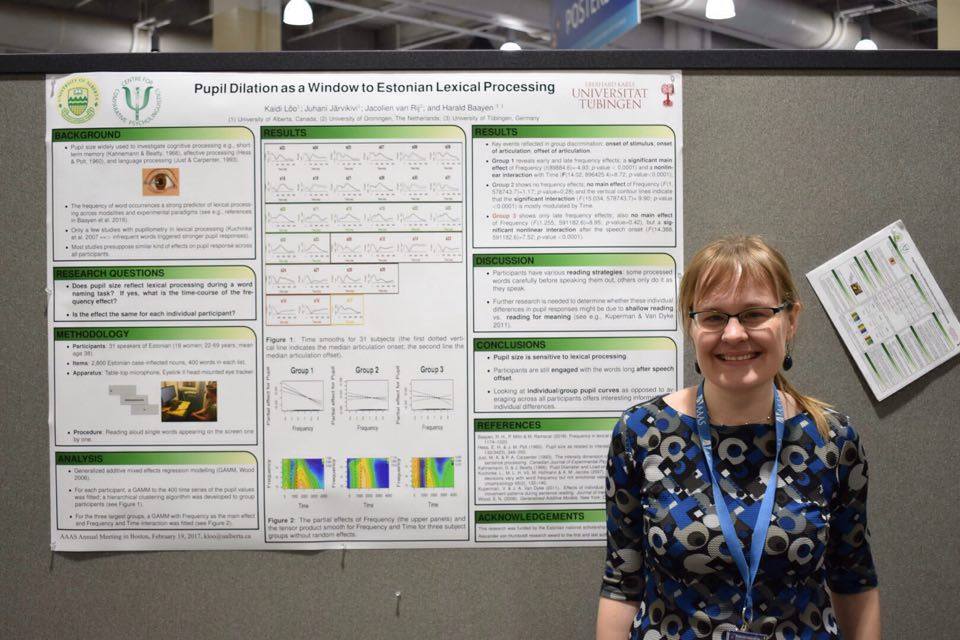
Pupil dilation as a window to Estonian lexical processing.
Abstract
Pupillometry (i.e. the measurement of pupil dilation) has been a popular method in psychological research, such that greater pupil dilation reflects a larger cognitive load . A few studies have also applied it in lexical processing and shown that less frequent words trigger stronger pupillary response (Kuchinke et al., 2007; Papesh & Goldinger, 2012). However, the research is still relatively sparse and these studies have presupposed similar kind of effects for all participants. We challenged this assumption by studying how lexical properties of the stimuli, such as frequency and orthographic length, influence individual subjects’ pupillary response.33 native speakers of Estonian (22-69 years, mean age 38) completed a standard word naming study while their pupil dilation was tracked with an eye-tracker. We were interested in two questions: (i) whether pupil size reflects lexical processing costs during word naming, and (ii) whether the costs are the same for each participant. Using generalized additive mixed regression modeling (Wood, 2006), we identified three types of pupil response patterns during the word naming task. First, there were subjects whose pupil increased both in response to the stimulus onset and articulation offset. Second, there were subjects whose pupil increased only in response to the articulation offset. Third, some subjects showed only a minor increase in pupil response in general. We added group membership as a predictor to the model and observed that it significantly improved the model fit (Χ² =83721.693, df=8.000; p <0.0001). What our results show is that although for all participants lexical processing is reflected in pupil responses, there are significant differences in the shape, magnitude, and timing of these effects. In summary, pupil size can be successfully used to measure lexical processing. However, inter-participant variability should be taken into account (see Roehm et al. 2007 for similar conclusions in EEG research). Future research is needed to determine what triggers these differences (see Kuperman & Van Dyke, 2011 for individual differences in processing due to reading ability).
.